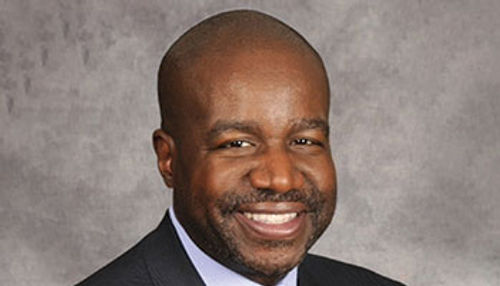Orlando Ashford is the executive chairman of Azamara.
Last year, as people were getting vaccinated, there was really strong momentum building. That momentum was disrupted by the delta variant for a few months, then we were again seeing momentum building.
We ask ourselves whether the omicron disruption will be similar to delta. I'm not a doctor, but I hope those early indications that although there is increased transmissibility of the variant, symptoms may be more mild holds to be true. We have to get more answers, but throughout all this, we've seen consumer strength and a strong desire to cruise.

Orlando Ashford, Azamara
We should see continued improvement from an economic standpoint in 2022. I think that some of the inflationary pressures are going to be transitory. But there will still be challenges. There are supply chain issues and questions about how the pandemic is managed around the world. But it will improve because we're already getting smarter, being more flexible and figuring out ways to navigate and manage.
One of the things I'm most proud of about the cruise industry is that we've always put the health and safety of our guests and crew first. As an industry, we've made tough decisions, but because we've done that, it protects the economic viability and what we offer in the long term. That's why our guests trust us and why you see strong demand. That's what we're seeing, especially in the latter part of '22 and moving into '23. People want to cruise, and I expect the industry to be even stronger than it was pre-pandemic.
The question is, when does it start? When are people going to feel 100% confident in the health protocols around the world? When is there going to be consistency in how different countries respond to the pandemic and the changes it brings? I'm not sure it's going to get back to exactly how it was before 2019. We're going to have to travel and live and work a bit differently. It may be similar to how we were all impacted by 9/11: We don't travel the same way, post-9/11.
Azamara is a global brand, and we have the ambition and desire to take people around the world. We're a destination-oriented brand. We're planning a world cruise. It's what we do, and that's our strength, and we want to hold on to that. Historically, cruise lines have always been able to plan cruises a couple years out, giving guests plenty of time to plan. But in 2022, where our ships sail must be cross-referenced with what's happening in the world and where we can bring ships safely.
We have two ships sailing now; one was working in Europe, and the second is coming into Florida and will be serving the Caribbean for a while. A third was scheduled to come out in January, with cruises around South Africa but, given some of the things going on with omicron, we will have to work through this in the short term as we get answers about port viability, health and safety protocols and where our guests can travel. Our fourth ship, Onward, doesn't come out of dry dock until the back half of April or beginning of May.
The advantage we have versus traditional hotels and resorts is that our hotels float and move. It gives us flexibility, and we use that flexibility to match up where our guests want to go and what they want to do. We can make adaptations, and for the most part our guests welcome them. We'll always be able to create enjoyable experiences for our guests, and we're confident that, from an economic viability perspective, from an interest-in-travel perspective, that our primary markets -- the U.S., Canada, the U.K. and Australia -- are really strong. And indicators suggest people there want to cruise.
-- Interviewed by Arnie Weissmann